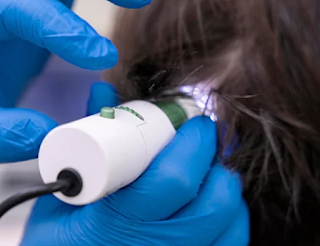What is the difference between a hair transplant surgeon and a general plastic surgeon?
While both a hair transplant surgeon and a general plastic surgeon are involved in cosmetic procedures, there are significant differences in their areas of expertise and the specific treatments they perform. Here are the key distinctions between a hair transplant surgeon and a general plastic surgeon:
Specialization: A hair transplant surgeon specializes specifically in hair restoration procedures, particularly hair transplantation. They focus on addressing hair loss and baldness using surgical techniques such as follicular unit extraction (FUE) or follicular unit transplantation (FUT). Their expertise lies in transplanting hair follicles from donor areas to areas of thinning or baldness.
Training and Education: Hair transplant surgeons receive specialized training and education in the field of hair restoration. They undergo specific courses and fellowships that focus on the intricacies of hair transplantation, including understanding hair growth patterns, donor and recipient site selection, and surgical techniques. This specialized training allows them to develop the skills necessary for successful hair transplant procedures.
Experience: Hair transplant surgeons accumulate extensive experience specifically in hair restoration procedures. They perform numerous hair transplant surgeries, honing their skills and techniques to achieve optimal results. Their expertise lies in creating natural-looking hairlines, ensuring proper graft placement, and maximizing hair density in the recipient area.
Scope of Practice: Hair transplant surgeons primarily focus on hair-related procedures and treatments, such as hairline reconstruction, eyebrow transplants, and beard or mustache restoration. They dedicate their practice to understanding the complexities of hair growth, transplant techniques, and the specific needs of patients experiencing hair loss.
General Plastic Surgeons: On the other hand, general plastic surgeons have a broader scope of practice. They are trained in a wide range of plastic and reconstructive procedures, which may include breast augmentation, rhinoplasty, liposuction, facelifts, and various non-surgical cosmetic treatments. While they may have some knowledge and experience in hair transplantation, it is not their primary focus or specialization.
Referrals: In certain cases, a general plastic surgeon may refer a patient experiencing hair loss or seeking hair restoration to a hair transplant surgeon. This referral is made to ensure that the patient receives the expertise of a specialist who has in-depth knowledge and experience specifically in hair transplantation.
In summary, while both hair transplant surgeons and general plastic surgeons perform cosmetic procedures, a hair transplant surgeon specializes exclusively in hair restoration procedures. Their training, experience, and focus are dedicated to addressing hair loss and providing optimal results through hair transplantation techniques. If you are considering a hair transplant procedure, consulting with a specialized hair transplant surgeon can provide you with the expertise needed for a successful outcome.

.jpg)
.jpg)
Comments
Post a Comment